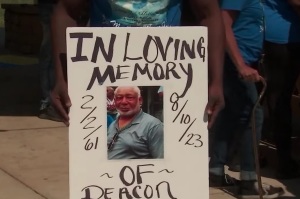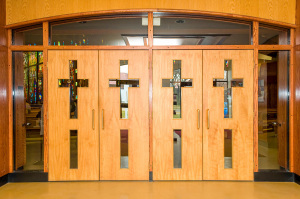WCC Addresses Christianity, Spirituality, Violence at International Conference
The Oct. 27-29 conference featured several speakers addressing ''Violence and Christian spirituality.''
Christians may disagree on issues of creed and polity, but they can join hands in overcoming violence, the head of the world’s largest ecumenical body said last week.
"Violence does not recognize differences between Protestant, Catholic, Orthodox or Pentecostal. Violence is our common plague, and non-violent love, peace, justice and reconciliation are our common calling," Rev. Dr Samuel Kobia, General Secretary of the World Council of Church, told participants at an international conference in Boston, Mass.
The Oct. 27-29 conference, jointly sponsored by the Holy Cross Greek Orthodox School of Theology, the WCC and the Boston Theological Institute, featured several speakers addressing “Violence and Christian spirituality.”
Speakers referred to various faces of violence from global terrorism, the war on terrorism, political conflict and domestic violence, and discussed ways to overcome violence through reconciliation and peace.
Accordingly, Kobia, whose organization launched 10-year plan to overcome violence in 2001, said he believes continuous dialogue is the key to maintaining peace in society and in the church.
"Dialogue is not and can never serve as an ambulance in a sudden crisis or conflict. It is more like a prophylactic medicine, which when often and regularly used, will sustain health even in difficult situations,” said Kobia.
In recent years, Christians across the theological spectrum have joined hands and voices to speak out against violence and poverty. The points of contact between liberals and conservatives have surrounded the global issues of AIDS, poverty relief and religious freedom – all issues Kobia said can be characterized under a common banner of “violence.”
“Violence has many faces: personal, inter-personal, and collective, and it comes in many forms: physical, psychological, sexual or in the guise of negligence and deprivation,” Kobia explained. “it is not simply political conflict, war or terror that threaten the lives of people everywhere.”
Ultimately Kobia said this effort to end violence is the highlight of the Christian identity and mission.
“The different Christian traditions clearly have different contributions to bring to this mission, and all are needed, all are significant,” he said. “Let not our differences get in the way of this Christian ecumenical task which is our mission to the world in Christ’s name.”




























